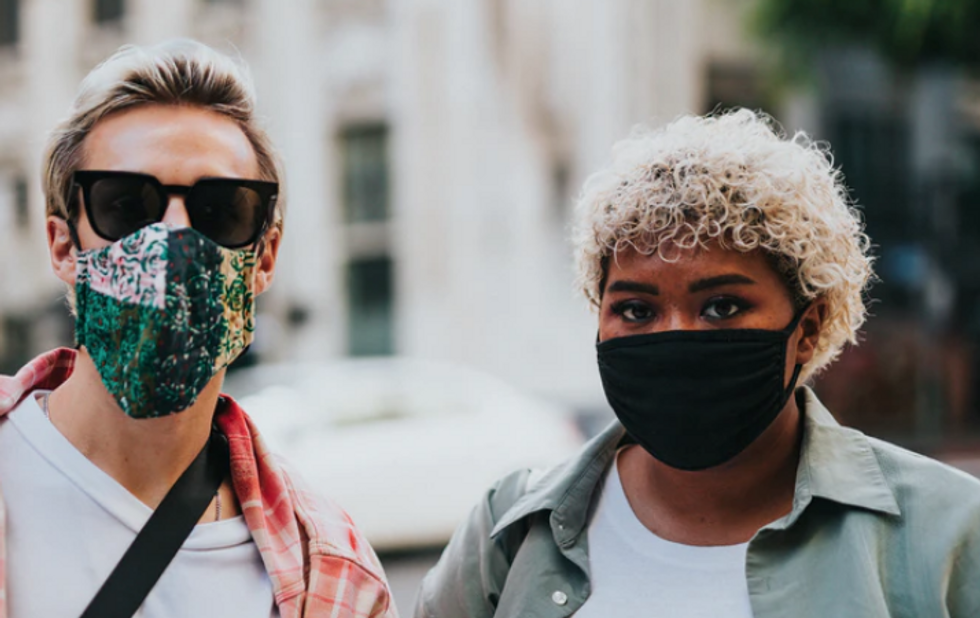Wearing masks has become a controversial topic in today's pandemic-riddled society. However, it should not have to be a moot point when there are only benefits for wearing masks despite the evanescent toleration the wearer must go through.
As countries start to reopen and wake up from quraantine, many places are requiring people to wear masks at all times to reduce the spread of COVID-19. There are riots where people are protesting that marks are taking away one's liberty and freedom; however, the irony behind it is the increasing incidence rate of Coronavirus infections.
The World Health Organization (WHO) and other healthcare organizations highly recommend everybody to wear masks. Though at first they only wanted people who were infected to wear masks, to eventually combat the COVID-19 cases, everyone's cooperation is needed.
Why should you wear a mask?
The most obvious reason: it protects people.
The primary way the coronavirus spreads is from person to person by respiratory droplets produced when an infected person coughs, sneezes or talks. Face masks, however, can block these droplets. They act as a barrier to keep virus-containing particles from escaping an infected individual and landing on another person.
After the population developed a false sense of security, the numbers still did not decrease. One of the reasons why a mask is so important is that when we look into a crowd, we cannot tell who is infected and who is not. The incubation period for the virus is about 14 days, then symptoms will show in a degree that is unique to the infected person. However, the disease can spread during the incubation period when the person is still oblivious to their own health status.
A myriad of compelling case reports suggest that masks can do an impeccable job in preventing transmission in high-risk scenarios. According to the study, an infected man went on a flight from China to Toronto and wore the mask for the whole flight. The 25 people around him tested negative. Furthermore, two hair stylists in Missouri were infected while hairdressing 140 clients. A few days later, every client tested negative.
However, medical experts say that wearing a mask is not enough to fully prevent any disease transmission in public. Germs can pass through one's eye membranes and stay on one's skin for up to 3 days (if their hands were not washed), so refraining from touching one's face is also a vital factor in preventing transmission.
The Institute of Health Metrics and Evaluation predicted that 33,000 deaths in the US could be effortlessly avoided by October 1st if the population cooperates and wears masks in public at all times. Any mask that covers the nose and mouth will reduce the transmission rate accordingly. There is no mask that can 100% prevent any germs from entering your body, but wearing a mask can reduce the risk substantially.
Wearing a mask also reminds one to be cautious at all times. It does not encourage one to touch their face more often, but it's presence makes people realize that they are living during a pandemic and should do whatever it takes to keep themselves and the people around them safe.
Yet people still aren't wearing masks. Why?
There are countless misconceptions on wearing masks. A study from Stanford University proves that masks do not cause brain damage. People believe in a myth that masks will cause you to breathe in excess Carbon Dioxide and lead to brain damage. A properly constructed mask will provide enough ventilation. The study shows that if you can blow a candle behind the mask from a foot away, the mask is fine and will not lead to any brain damage whatsoever.
Moreover, people in the United States are accustomed to complete liberty. They are not used to being forced to wear face masks or do what the government says. However, countries in Asia are already acclimated to wearing masks during high air pollution levels and epidemics. People in the US are protesting to stop wearing masks, but that will only aggravate the pandemic and increase social-distancing periods.
You don't lose anything by wearing masks. You may feel uncomfortable, but learning to prevent oneself from disease transmission and developing good hygiene will allow the pandemic to diminish quicker. Not only does this require the cooperation of medical professionals and people who are infected, but it requires the cooperation of everyone in the world to fight this pandemic together.

















